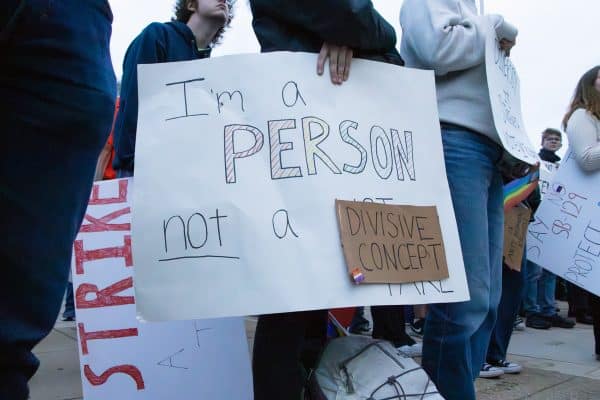Alabama’s checks and balances are broken
August 7, 2019
Throughout their time in school, children are often taught the basics of American governmental procedures. One of those lessons states that it takes a two-thirds majority of Congress to override a direct veto from the president. Because so many U.S. states model their governments off the federal counterpart, most would assume that this statement remains true on the state level, but it does not. In fact, only 36 states require a two-thirds majority from both legislative chambers to override a veto from the governor. Six others, including Alabama, only require a majority vote.
To override a veto from the Alabama governor, there must be a simple majority vote from the members of both chambers. Numerically, this is 53 of the 105 members of the Alabama House of Representatives and 18 of the 35 members of the Alabama Senate. When controversial legislation is passed, the public often directs anger and frustration onto the governor. Although this is understandable, as the Governor’s signature signifies a bill becoming a law, Alabama’s governors often finds themselves with their hands tied. The power is in the hands of Alabama state legislators. If the governor were to issue a veto, the probability of a majority being reached is high, which would diminish the publicly-perceived power of the chief executive.
Alabama is one of 44 states that allows line-item veto, the ability to delete specific sections of a bill that has been passed by the legislature. While many governors have this power, the U.S. president does not. In a Supreme Court case in 1998, Clinton v. The City of New York, the Supreme Court ruled that line-item vetoes were unconstitutional on the grounds that they violated the Presentment Clause of the Constitution, which says that the president does not have the power to unilaterally amend or repeal legislation passed by Congress. The governor of Alabama also has the power to issue an amendatory veto, the ability to amend bills that have been passed by the legislature. In the case of either veto, deletions and revisions are subject to confirmation or rejection by the legislature. Whether an Alabama governor issues a direct veto, line-item veto, or amendatory veto, that bill must always go through the approval of the legislature for confirmation or rejection; there’s no way around it.
The 2019 Alabama legislative session saw several controversial topics debated on the floor. Two of the most widely known pieces of legislation were HB314, known as the ‘Human Life Protection Act,’ and HB379, known as the Chemical Catsration Bill. HB314 passed the Senate 25-6 and the House 74-3. HB379 passed the Senate 27-0 and the House 71-16. These are remarkably skewed voting results, surpassing the minimum for a simple majority by a substantial amount. Gov. Kay Ivey signed both pieces of legislation into law. Whether she agreed with the decision of the Alabama legislators or not, vetoing would be a risky decision. Although a veto from the governor does carry some weight, Alabama legislators have proven that it takes a lot more than a veto statement to sway their opinions and moral convictions.
So, what does this mean for controversial issues tied up in legislation in the future? The power is in the hands of the legislators. The majority opinion of Alabama’s legislative officials will dictate the path many bills take in the future. Our checks and balances are lacking, and if Alabamaians want to see some change in the way its government implements policy, changes need to be made to the process itself.











